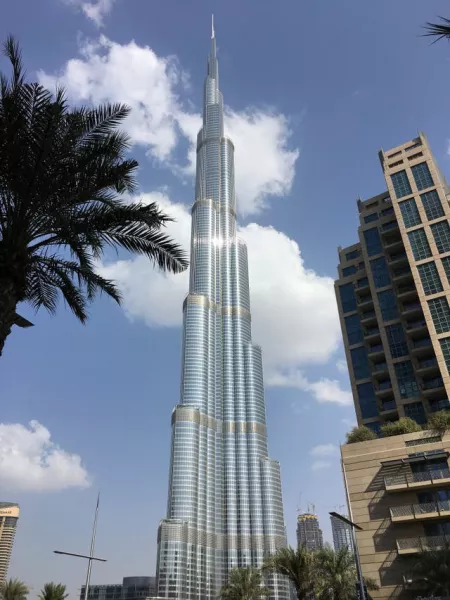Coronavirus infections are surging to unprecedented heights in the United Arab Emirates.
The daily virus case count has nearly tripled in the last month but Dubai cannot afford to shut down, particularly during its peak winter season.
The virus is shaking the foundations of the city-state’s economy.
Dubai is known for its cavernous malls, frenetic construction and legions of foreign workers.
The city was built on the promise of globalisation; its economy draws from the aviation, hospitality and retail sectors — all hard hit by the virus.
Authorities are seizing on the country’s mass vaccine rollout as the only way to contain the outbreak.
Reality is catching up to the big-dreaming emirate with the UK shutting its travel corridor last week but the city is still refusing to lock down.
“Dubai’s economy is a house of cards,” said Matthew Page, a nonresident scholar at the Carnegie Endowment for International Peace.
“Its competitive advantage is being a place where rules don’t apply.”
While most countries banned tourists from the UK over fears of the fast-spreading virus variant found there, Dubai, home to some 240,000 British expats, kept its doors open for the holidays.
Emirates flew five daily flights to London’s Heathrow Airport.
Within days, the new virus strain had arrived in the emirates, but that did not stop reality TV and footballers from fleeing Britain’s lockdown and wintry weather for Dubai’s bars and beaches — without taking a coronavirus test before boarding.
Dubai was glad of the influx.
Hotel occupancy rates surged to 71% in December, according to data provider STR.
The London-Dubai air route ranked busiest in the world over the first week of January, said OAG, an aviation data analysis firm.
“People have had enough of this pandemic already,” said Iris Sabellano from Dubai’s Al Arabi Travel Agency, adding that many of her clients have been forced to quarantine after testing positive for the virus on arrival or before departure.

Travellers coming from a select list of countries do not need to get tests before their trips but all must at Dubai’s airport.
“With vaccines coming out, they feel it’s not the end of the world, they’re not going to die,” she said.
For those who do die of Covid-19, Emirates Airlines offers to pay 1,800 US dollars to help cover funeral costs.
As the outbreak worsens, it seems the stampede will slow.
Israeli tourists, who were coming in the tens of thousands following a normalisation deal between the countries, have vanished due to new quarantine rules.
A decision to suspend visa waivers for Israelis to the UAE until July took effect on Monday.
Britain’s move to mandate a 10-day quarantine for those returning from Dubai threatens to clobber what’s left of the tourism sector.
“Brits make up such an important proportion of tourists and investors in Dubai,” said David Tarsh, spokesman for ForwardKeys, a travel data-analysis company.
“Cutting that pipeline … is a complete disaster for the city.”

Amid an aggressive testing campaign, the country has reported more than 256,000 cases and 751 deaths.
Analysts speculate the UAE’s unique demographics — 90% expatriate, comprising mostly healthy, young labourers — have prevented well-staffed hospitals from becoming overwhelmed and kept the death rate low, at 0.3%.
But that has not assuaged Abu Dhabi, Dubai’s more conservative neighbour and the country’s capital.
Without explanation, Abu Dhabi has kept its border with freewheeling Dubai shut, despite promises to reopen by Christmas.
Anyone crossing into Abu Dhabi must present a negative coronavirus test.
Relations between service-heavy Dubai and oil-rich Abu Dhabi can get tense.
During the 2009 financial crisis, Abu Dhabi needed to rescue Dubai with a 20 billion US dollar bailout.
This time, it is unclear whether Dubai can count on another cash infusion, given the crash in global oil prices.
Even pre-pandemic, Dubai’s economy was heading toward another downturn thanks to a shaky property market, which has plunged 30% in value since 2014 peaks.

Under pressure, authorities have seized on vaccines as the only way to contain the outbreak.
The UAE is offering the Chinese coronavirus vaccine Sinopharm to everyone, even as its announcement about the jab’s efficacy lacks data and details.
Demand has overwhelmed supply for the Pfizer-BioNTech vaccine in Dubai, where hotline operators say thousands of high-risk residents remain on a waiting list.
With the country shattering its infection record for seven consecutive days, Dubai’s ruler, Sheikh Mohammed bin Rashid Al Maktoum, declared that widespread vaccination, not movement restrictions, would “accelerate the full recovery of our country”.







